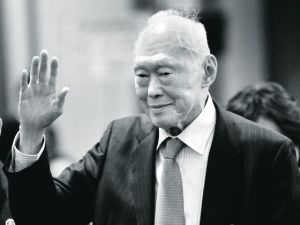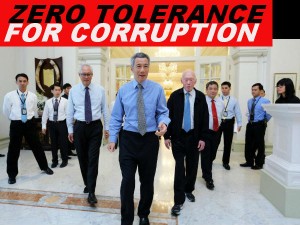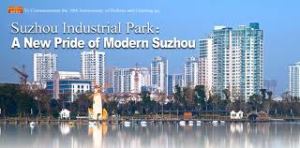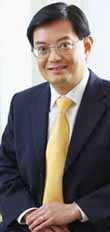With thanks to Din Merican on whose blog I first read this article. A good read!
 Lee’s rich insights on issues come from a capacious and disciplined mind. He listens and reads widely, but he does so like a detective, looking for and linking vital clues while discarding the irrelevant.
Lee’s rich insights on issues come from a capacious and disciplined mind. He listens and reads widely, but he does so like a detective, looking for and linking vital clues while discarding the irrelevant.
 I accompanied Lee on many overseas trips. The 1998 trip to the US is particularly memorable. Each day brought new ideas and, throughout the trip, I sent back many observations for our departments to study. It might be the type of industry that we might develop or the type of trees that might add colour to our garden city.
I accompanied Lee on many overseas trips. The 1998 trip to the US is particularly memorable. Each day brought new ideas and, throughout the trip, I sent back many observations for our departments to study. It might be the type of industry that we might develop or the type of trees that might add colour to our garden city.
 The Suzhou Industrial Park project was one of the areas in which Mr Goh asked Lee to stay actively involved. Two years into the project, we ran into teething problems: Local Chinese officials promoted their own rival park.
The Suzhou Industrial Park project was one of the areas in which Mr Goh asked Lee to stay actively involved. Two years into the project, we ran into teething problems: Local Chinese officials promoted their own rival park.
November 19, 2013
Lee Kuan Yew: Unwavering Dedication to Singapore
The first time I met Lee Kuan Yew in person was in March 1997, when he interviewed me for the job of Principal Private Secretary (PPS). His questions were fast and sharp. Every reply drew even more probing questions.
At the end of it, he said: “Brush up your Mandarin and report in three months. We have an important project with China.”
I realized later that, among other things, it was perhaps when I replied “I don’t know” to one or two questions that I made an impression. With Lee, it is all right if you do not know something. But you do not pretend and lie if you do not know. Integrity is everything.
I had the privilege of working as Lee’s PPS from mid 1997 to early 2000. This was the period of the Asian Financial Crisis, and Lee was writing his memoirs. Lee’s world views are comprehensive and consistent. Three stand out for me.
That Yin-Yang tension
The first is about Singapore’s place in the world. His view is that a small city state can best survive in a benign world environment, where there is a balance of powers, where no single state dominates, and where the rule of law prevails in international affairs.
A small city state has to stay open and connect with all nations and economic powerhouses. To prosper, Singapore has to be relevant to the world. We must be exceptional.
Second: His views about human nature, culture and society. Human beings have two sides to our nature — one that is selfish, that seeks to compete and to maximize benefits for ourselves, our families, our clans; the other that is altruistic, that seeks to cooperate, to help others, and to contribute to the common good.
A society loses its vigour if it eschews excellence and competition; equally, a society loses its cohesion if it fails to take care of those who are left behind or disadvantaged. Lee believes that this tension between competition and cooperation, between yin and yang, is one that has to be constantly recalibrated. Within a society, those who are successful must contribute to it and help others find success. We must share the fruits of our collective efforts.
Third: His views about governance and leadership. As a lawyer, Lee believes deeply in the rule of law and the importance of institutions in creating a good society. But institutions are only as good as the people who run them. Good governance needs leaders with the right values, sense of service and abilities. It is important to have leaders who can forge with the people a vision for the future and to forge the way forward.
Above all, leaders are stewards. They should develop future leaders and, when their time comes, they should relinquish their positions, so that the next generation of leaders can take us to greater heights.
His favourite question: “So?”
While Lee’s world views are wide-ranging and widely sought, when I worked with him, I had the privilege of learning how his views are so coherent, rigorous and fresh, and how he put his agile mind in the service of the Singapore cause.
Lee’s favorite question is “So?” If you update him on something, he will invariably reply with, “So?” You reply and think you have answered him but, again, he asks, “So?” This forces you to get to the core of the issue and draw out the implications of each fact.
His instinct is to cut through the clutter, drill to the core of the issue, and identify the vital points. And he does this with an economy of effort.
I learned this the hard way. Once, in response to a question, I wrote him three paragraphs. I thought I was comprehensive. Instead, he said: “I only need a one sentence answer, why did you give me three paragraphs?” I reflected long and hard on this, and realized that that was how he cut through clutter. When he was Prime Minister, it was critical to distinguish between the strategic and the peripheral issues.
Persuasive, but also persuadable
On my first overseas trip with Lee, Mrs Lee, ever so kind, must have sensed my nervousness. She said to me: “My husband has strong views, but don’t let that intimidate you!”
Indeed, Lee has strong views because these are rigorously derived, but he is also very open to robust exchange. He makes it a point to hear from those with expertise and experience. He is persuasive, but he can be persuaded.
A few months into my job, Lee decided on a particular course of action on the Suzhou Industrial Park, after deep discussion with our senior officials. That evening, I realized that amid the flurry of information, we had not discussed a point. I gingerly wrote him a note, proposing some changes. To my surprise, he agreed.
One-man intelligence agency
 Lee’s rich insights on issues come from a capacious and disciplined mind. He listens and reads widely, but he does so like a detective, looking for and linking vital clues while discarding the irrelevant.
Lee’s rich insights on issues come from a capacious and disciplined mind. He listens and reads widely, but he does so like a detective, looking for and linking vital clues while discarding the irrelevant.
Once, he asked if I recalled an old newspaper article on United States-China relations. I could not — this was several months back and I had put it out of my mind — but a fresh news article had triggered him to link the two developments.
I realized that he has a mental map of the world where he knows its contours well. Like radar, he is constantly scanning for changes and matching these against the map. What might appear as random and disparate facts to many of us are placed within this map and, hence, his mental map is constantly refreshed.
A senior US leader described this well — Lee is like a one-man intelligence agency.
Every moment about Singapore
The most remarkable feature of the map in Lee’s head is the fact that the focal point is always Singapore. I mentioned his favourite word, “So?” Invariably, the “So?” question ends with, “So, what does this mean for Singapore?” What are the implications? What should we be doing differently? Nothing is too big or too small.
 I accompanied Lee on many overseas trips. The 1998 trip to the US is particularly memorable. Each day brought new ideas and, throughout the trip, I sent back many observations for our departments to study. It might be the type of industry that we might develop or the type of trees that might add colour to our garden city.
I accompanied Lee on many overseas trips. The 1998 trip to the US is particularly memorable. Each day brought new ideas and, throughout the trip, I sent back many observations for our departments to study. It might be the type of industry that we might develop or the type of trees that might add colour to our garden city.
This remains his style today. His every waking moment is devoted to Singapore, and Lee wants Singapore to be successful beyond his term as Prime Minister.
From the early 1960s, he already spoke about finding his successor. During my term with him, as Senior Minister, he devoted much effort to helping then-Prime Minister Goh Chok Tong succeed.
He refrained from visiting Indonesia and Malaysia as he wanted Mr Goh to establish himself as our leader. Instead, he fanned out to China, the US and Europe to convince leaders and investors that Mr Goh’s leadership would take Singapore to new levels of success.
As Senior Minister, he worked out with Mr Goh areas where he could contribute, and I will share three key projects that not only illustrate his contribution but, more importantly, how he develops insights and achieves results.
Single-minded about results: Suzhhou
 The Suzhou Industrial Park project was one of the areas in which Mr Goh asked Lee to stay actively involved. Two years into the project, we ran into teething problems: Local Chinese officials promoted their own rival park.
The Suzhou Industrial Park project was one of the areas in which Mr Goh asked Lee to stay actively involved. Two years into the project, we ran into teething problems: Local Chinese officials promoted their own rival park.
Some felt that such startup problems and cultural differences were expected and would be resolved over time. But Lee drilled deep into the issues and held many meetings with our officials. He worked with intensity that I did not expect of someone who was then 75 years old.
He concluded that the problem was much more fundamental. China had (and still has) a very complex system of government, with many layers and many interest groups, some formal, some invisible. The interests of the various groups at the local levels were not aligned with the objectives that the central government in Beijing and Singapore had agreed upon. Unless this was put right, the project would not go far.
Instead of hoping that time would resolve this, Lee raised issues at the highest levels and made the disagreements public. He was unfazed that going public could diminish his personal standing.
He proposed to the Chinese, among others, two radical changes: To swap the shareholding structure so that the Chinese had majority control, and to appoint the CEO of the rival park to head the Suzhou Industrial Park. Lee was proven right — the changes created the necessary realignment and put the project back on track.
Next year, we will be witnessing the 20th anniversary of the Suzhou Industrial Park. From all accounts, it has been a success story, not just in its development, but also in how it has enabled a new generation of leaders from both sides to develop a deeper understanding of each other, and in paving the way for further collaboration.
I learned a valuable lesson. If things go wrong, do not sweep them aside. Confront the problems, get to the root of the difficulties, and wrestle with these resolutely. Go for long-term success, and do not be deterred by criticisms.
Adversity into Opportunity: Financial crisis and reforms
My second example, on the revamping of the financial sector, shows how Lee is constantly looking out for how Singapore should change, and how he turns adversity into opportunity.
The 1997/98 Asian Financial Crisis hit the region hard. Many analysts attributed it to cronyism, corruption and nepotism. Lee read up on all the technical analyses and met with our economists. I was amazed at how, at the age of 75, he would delve deeply into the issues.
He concluded that the reason was more basic — investors’ euphoria and the weak banking and regulatory systems in the affected countries had allowed a huge influx of short-term capital. These weaknesses had their origins in the political system. Cronyism exacerbated the problems, but was not the cause. Years later, many bankers would tell me that Lee’s analysis was the best they had heard.
Lee was convinced that though Asia’s economic growth would be set back temporarily, dynamism would return. In the short term, we had to navigate the crisis carefully but, for the longer term, we should turn this adversity into opportunities. While investors fled, we should use the crisis to lay the foundation for a stronger Singapore in a rising Asia.
Lee took the opportunity to review the long-term positioning of Singapore’s financial sector. With the permission of then-Prime Minister Goh, he met experts from different backgrounds as well as the chairmen of local banks.
An Act of boldness
For years, Lee had believed in strict regulation and in protecting our local banks. While this protected the banks from the crisis, it had its cost. Our stringent rules, while appropriate in the past, were now stifling growth, and the banks were falling behind.
Lee was persuaded that our regulatory stance had to change.I was struck by his systematic and calibrated approach. His reputation is that he is impatient for results, and drives a fast pace. This is true, but he is also wise in distinguishing between things that change slowly and things that ought to change swiftly. Instead of one big bang, he was in favour of a series of steps which added up to a significant shift of direction.
Lee discussed with and sought Mr Goh’s approval on a broad plan to revamp the financial sector. Mr Goh agreed with the plan, and later appointed then-Deputy Prime Minister Lee Hsien Loong as Chairman of the Monetary Authority of Singapore (MAS) in January 1998. Lee Hsien Loong did a review of major policies and reoriented the MAS’ organizational culture. Remarkably, within a few years, the MAS was transformed. By 2006, when I became Managing Director of the MAS, I inherited an organization with a new set of regulatory doctrines and a deeper pool of talent.
The global financial crisis of 2007/08 tested our system severely. We not only withstood the shock, but also emerged stronger after the crisis. Singaporeans’ savings were well protected and businesses recovered rapidly.
If Lee had not initiated the changes in the late 1990s and sought to turn adversity into opportunities, we would not have become a stronger financial center today. To prepare to open up our financial system in the midst of one of the worst financial crises is, to me, an act of great foresight and boldness.
Advocate for collaboration
My third example relates to how Lee expanded our external space by being a principled advocate of collaboration, based on long-term interests. Today, we are remarkably well-connected, but this did not come by accident. Over the years, Lee has worked hard at this.
His strategic world view has projected Singapore onto the global stage and created opportunities for Singaporeans. In all his years as the face of Singapore, Lee also made fast friendships with senior world leaders who appreciate his view of things and respect Singapore’s principled stance on international issues.
This was driven home to me at two meetings. In 1999, relations between the US and China were very tense. China’s negotiations with the US on its entry to the World Trade Organisation (WTO) had failed, there were tensions between the two countries over US bombs that had hit the Chinese embassy in Belgrade, and President Lee Teng Hui in Taiwan had pronounced his “two states” concept.
In July 1999, US Secretary of State Madeleine Albright and Chinese Foreign Minister Tang Jiaxuan were in Singapore for the ASEAN Regional Forum. It was quite tense, and many of our officials believed there could be a flare-up at the forum. Both figures met Lee separately.
Lee gave each side his reading of their long-term strategic interests. His advice to the US was that it was not in their interest to be adversarial towards China or regard her as a potential enemy. To China, he suggested that it should tap into the market, technology and capital of the US to develop its economy. They should look forward, and search for areas of cooperation, such as China’s entry into the WTO.
Sitting in these meetings, I was struck by how Lee approached this delicate situation. He did not say one thing to one and sing a different tune to another. If they had compared notes later, they would have found his underlying position inconsistent.
What made him persuasive was how he addressed the concerns and interests of each side. I could see from the way both reacted that his arguments struck a chord, and one of the guests asked a note-taker to write the notes verbatim for deeper study later on. In 2000, a few months after this meeting, I was very pleased to witness China’s entry into the WTO at the Doha meeting.
The pragmatic Idealist
What is Lee like as a person? The public persona of Lee is a stern, strict, no-nonsense leader. But deep down, he is energized by a deep sense of care for Singaporeans, especially for the disadvantaged.
He does not express this in soft, sentimental terms — his policies speak louder, and he is content to let them speak for themselves. He distributed the fruits of Singapore’s progress in a very significant way, by enabling Singaporeans to own their flats. Apart from the investment in education, he donated generously to the Education Fund to provide awards, especially to outstanding students from poor families.
He is a firm advocate of a fair and just society. But he demands that everyone, including those who are helped, put in their fair share of effort.
Many regard Lee as a pragmatist who does not hesitate to speak the hard truths. I think he is also an idealist, with a deep sense of purpose. He believes one has to see the world as it is, not as one wishes it to be. Fate deals us a certain hand of cards, but it is up to us to make a winning hand out of it. Through sheer will, conviction and imagination, there is always hope of progress.
Man is not perfect, but we can be better — Lee embraces Confucianism because of its belief in the perfectibility of man. No society is perfect either, but a society with a sense of togetherness can draw out the best of our human spirit and create a better future for our people.He is, to me, a pragmatic idealist.
A close-knit family
During my term as PPS, the Prime Minister of a Pacific Island nation asked to call on Lee. Given his very tight schedule, I thought Lee would not be able to meet him. To my surprise, he said he would make the time.
He explained that this young Prime Minister’s father had been a comrade-in-arms, fighting the British for independence, and he owed it to his father, who had passed on, to offer whatever advice might be useful.
Lee and his family are closely knit, and he was particularly close to Mrs Lee. On overseas trips, I had the opportunity to have many private meals with Mr and Mrs Lee. It was heartwarming to see their bantering. Lee has a sweet tooth, and Mrs Lee would, with good humour, keep score on the week’s “ration”.
But when it came to official work, they drew very clear lines. Mrs Lee travelled with him whenever she could. Once, in Davos, she came into the tiny room where Lee was giving a media interview. She found a stool in a corner and sat there, listening unobtrusively. Twice, I offered her my more comfortable seat near Lee. She said to me: “You have work to do. I am just a busybody — don’t let me disturb you!”
Mrs Lee was supportive without intruding — she was certainly not “just a busybody”, and anyone who had the chance to observe them together would know just how close a couple they were, and how much strength her presence gave to her husband.
An unwavering dedication
We live today in a different world that demands of us new ideas and approaches. But there is one quality of Lee’s that we can, and need to, aspire towards: His unwavering and total dedication to Singapore, to keeping Singapore successful so that Singaporeans may determine our own destiny, and lead meaningful, fulfilling lives.
Singapore’s survival and success are Lee’s life’s work and his lifelong preoccupation. History gave him a most daunting challenge — building a nation out of a tiny city state with no resources and composed of disparate migrants. He cast aside his doubts, mustered all his being and has given it his all.
His most significant achievement is to show the way forward in building a nation. There were, and still are, no textbook answers for achieving this. Lee and his team analyzed the issues from first principles and had the courage and conviction to do what was right and what would work for the country.
Lee is an activist. He and his team would try, adapt and experiment, to get on with the job of making Singapore a better home for all. In the same way that he asks himself, we need to always be asking ourselves, “So?” So, what does this mean for Singapore? So, what should we do about it? And act on it.
Of the many qualities I have observed in him, this is the one that leaves the deepest impression on me — the one I hope we can learn to have. We take inspiration from the courage and determination of Lee and his colleagues. The task of creating a better life for all Singaporeans — through expanding opportunities and through building a fair and just society — never ends. – Todayonline.com, September 17, 2013.
* Heng Swee Keat is Singapore’s Education Minister and this is an abridged version of his speech from the conference “The Big Ideas of Lee Kuan Yew”, organized by the Lee Kuan Yew School of Public Policy in celebration of Lee’s 90th birthday.
